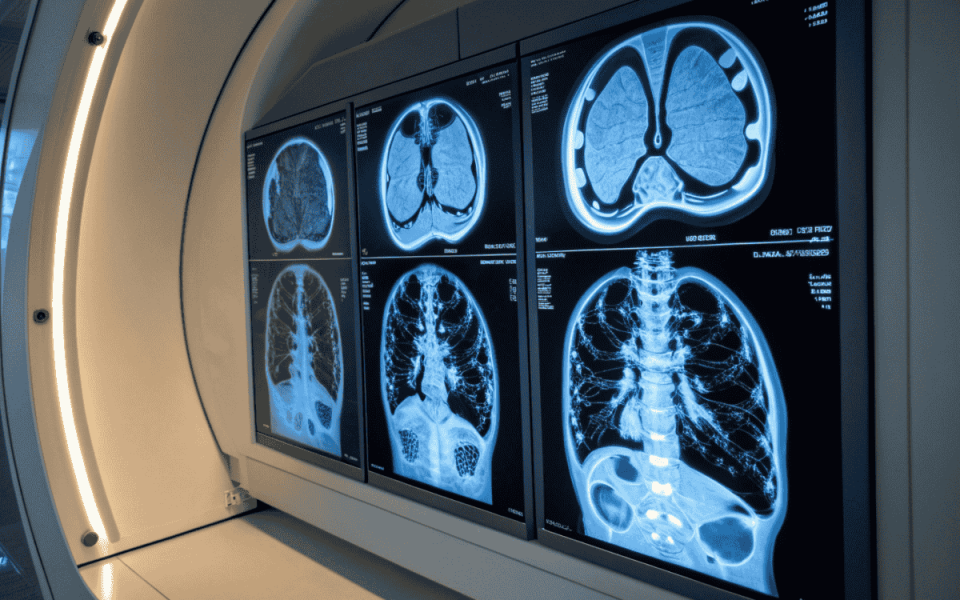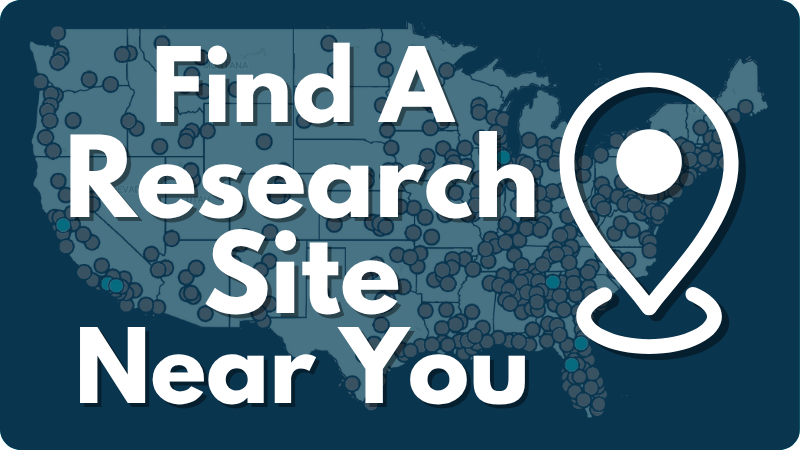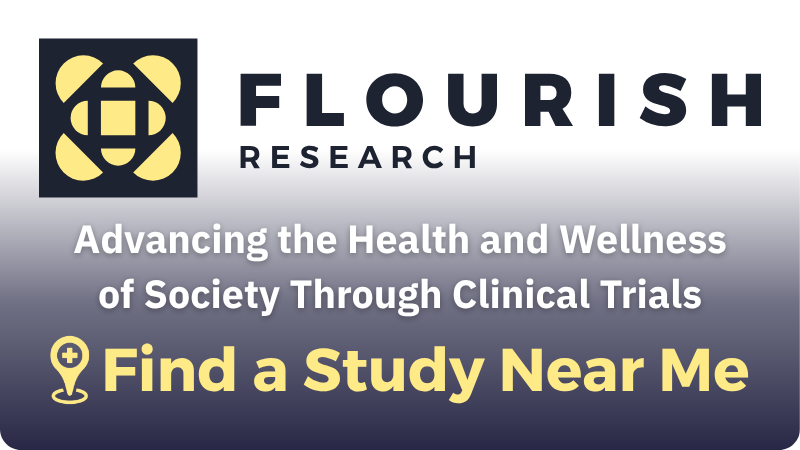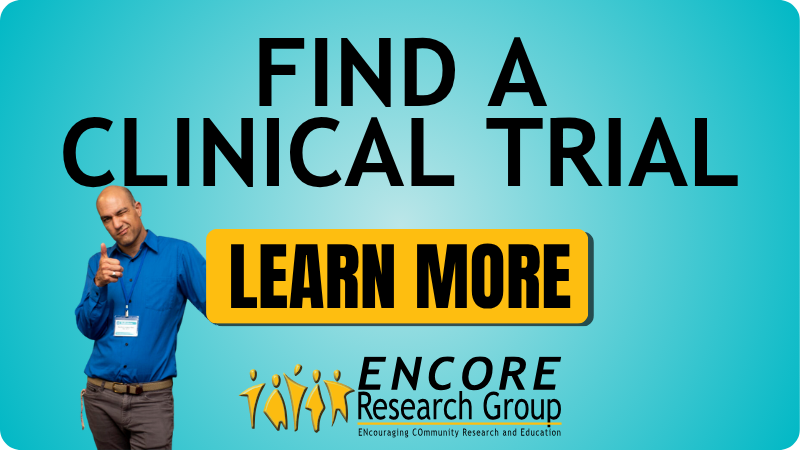Seeing the Difference Imaging Can Make in Medicine

Audio
Dr. Michael Koren joins Kevin Geddings to discuss the pivotal role imaging has played in diagnosis and understanding of various diseases. Dr. Koren notes that before the science of imaging, the only way to see what was going on inside the body was with a knife. They then discuss some of the newest applications of imaging and how the use of CT scans and amyloid PET scans can see inside the heart and arteries to see how a disease is progressing or the effectiveness of new medications.
They talk about the progress that has been made and how we are able to see what's happening, but note that access to these imaging technologies is not evenly available and that sometimes cost or insurance can get in the way of healthcare access. Dr. Koren then points out that clinical research may offer some patients a way for some patients to access these imaging technologies outside of the traditional healthcare system if they have risks or signs of diseases being studied.
Transcripts
Transcript Generated by AI.
Announcer: 0:00
Welcome to the MedEvidence Monday Minute Radio Show, hosted by Kevin Geddings of WSOS St. Augustine Radio and powered by ENCORE Research Group. Each Monday morning, Dr. Michael Koren calls in to bring you the latest medical updates with insightful discussions. MedEvidence is where we help you navigate the real truth behind medical research with both a clinical and research perspective. So sit back, relax, and get ready to learn about the truth behind the data in medicine and healthcare. This is MedEvidence.
Kevin Geddings: 0:30
Speaking of special stuff, we've got Dr. Michael Koren live on the studio line. He joins us every Monday morning. We appreciate him taking time out of his busy schedule. Of course, he is a medical doctor and a cardiologist and a research scientist. He's also, of course, the leader of the team at ENCORE Research Group, where they do leading-edge clinical research all around our part of Florida, including here in St. Augustine. Their office is in the Whetstone Building next door to UF Flagler Hospital. You can connect with them at 904-730-0166, and we're going to talk specifically this morning about a study going on here in St. Augustine that you could potentially be a part of, and it relates back to the notion of imaging in medicine. Right, Dr. Koren?
Kevin Geddings: 1:11
That's right, Kevin. Good morning. Good morning. How are you? We're doing well. It's a good post-Jaguar victory Monday, so we're all excited.
Dr. Michael Koren: 1:19
Absolutely. Absolutely. Wasn't pretty, but we'll take it, right?
Kevin Geddings: 1:23
Oh, heck yeah. Heck yeah. It's still a W. So the world of imaging, I guess this will be a good trivia question. What was like the first x-ray going way back. It's interesting. Well,
Dr. Michael Koren: 1:35
the Nobel Prize was actually awarded to Wilhelm Roentgen for developing the technology of x-rays back in the 1890s. Wow. Those were the first. He was a German scientist. And of course, that led to a revolution in medical imaging, which has gotten more and more and more sophisticated. And there have been other Nobel Prizes that have been awarded for example, MRI, has been a technology that's been awarded the Nobel Prize as well. So certainly scientific breakthroughs and understanding of physics has led to incredible improvements in medical imaging, and we're beneficiaries of that today.
Kevin Geddings: 2:16
Yeah, no, absolutely. And obviously the progress that we see in all forms of technology, I'm sure, extends to imaging, right? I mean, what science can do to give us a sense of what's going on inside our bodies is pretty amazing.
Dr. Michael Koren: 2:28
Absolutely. Back in the old day, If you're having pain in your belly, for example, or other places, you had to take a knife and cut in and take a look. But nowadays, virtually all those things get answered through imaging. So they're truly breakthroughs. But with that, there's some unevenness, unfortunately. So some of these technologies are widely available and others are less widely available because of cost considerations or because of the fact that the specifics of that imaging technology may or may not be available to a particular community. And that's where research comes in. So you mentioned, for example, the technology that we're using in St. Augustine in some of our studies. Well, there are actually two. One is a concept called CT angiography, which is a concept where instead of doing invasive hard cast, we can use a cast scan technique to take a look at whether or not you have blockages in coronary arteries. And And that's not that esoteric. It's fairly widely available. But sometimes because of insurance reasons, people can't get access to it or their doctors may not be comfortable ordering it if they're not a cardiologist, for example. Or there's concerns about other elements of whether or not it's an appropriate test for a person, which, of course, we evaluate as part of our research. And, for example, if somebody was a pregnant person, we wouldn't necessarily subject that to x-rays. And that would be one example of a reason that you would not want to get a particular study. So all that goes into our evaluation. But another thing that we've done, for example, is what's called an amyloid PET scan of the brain. And that's also an expensive technology that may not be available in all communities. And then when you get into some of the details, each of these imaging modalities has different type of software that analyzes the images. So in the cardiac space, for example, there's certain types of software that do AI reconstructions of the arteries to get more insights to the nature of the plaque, the actual blockages of the arteries. And so all these different technologies may or may not be available to people that are seeing their regular physicians, but for particular studies and projects, we have access to them. And people look at this as a reason to get involved in research.
Kevin Geddings: 4:57
Yeah, no, that's pretty amazing. And so you have an opportunity opportunity out there to participate in this. So who would be the folks out there, Dr. Koren, who should consider participating in this particular study, which is going to take a look at imaging as it relates to blood vessels of the heart?
Dr. Michael Koren: 5:13
Yeah. So the particular study that you're alluding to is using a really interesting new medication. It's called the CETP inhibitor, which stands for cholesterol ester transfer protein inhibitor. And the reason it's a unique drug is that we have great ways of lowering LDL cholesterol, but not such great ways of raising HDL, the good cholesterol. And the study that we're looking at for this imaging technology involves whether or not a medicine that raises HDL will have a beneficial effect on plaques in the arteries. Some people participate in this kind of study, a placebo-controlled study, so you don't know exactly what you're going to be getting, but there's the opportunity that you can actually have a medicine that raises your HDL. And then we would look to see whether or not that has a beneficial effect on these blockages. But whether or not you get the actual medicine in the study, you'll get the benefits of the imaging. And this is an important point because there is a debate in medicine and particularly in cardiology is when you get more aggressive at treating cholesterol problems. So for example, if you're seven years old and your arteries are completely clean, there's not a great reason for you to take high doses of medication to lower your cholesterol. On the other hand, if you're 50 or 60 and you already have an even amount of plaquing in your arteries, well, there's a good chance that you're going to have a heart attack at some point in your life if you don't do something. And so people like that who may or may not even know whether or not they have plaque would benefit from these imaging studies to see whether or not they're at high risk and in turn, whether or not they should be involved in some sort of medical intervention.
Kevin Geddings: 6:58
And I guess, too, some of our listeners driving around or listening to us at the office or whatever, if they've had a family history of heart disease, that might be another reason to consider participating in a study that would be focused on imaging.
Dr. Michael Koren: 7:10
Absolutely. And that's a major concern of a lot of our projects, not just this imaging project. You and I have talked about this concept of lipoprotein malign, which is a type of a cholesterol problem that runs strictly through your genetics. So that's another example. But there are many, many other examples of diseases that have genetic components, including, as I mentioned, Alzheimer's disease and many other things. So if there is a genetic concern, please let us know and we'll evaluate you. And one of the nice things, actually, I had this conversation right before I left for the weekend on Friday with a lovely couple all about lycoprotein little a. And these were very educated people who told us about their family history. And it was a concerning family history. And we offered to actually screen all their kids. And we'll do that for free as part of research. because we have study grants to cover all those expenses. So it's a nice opportunity for people to learn more about their genetics and what their risk is.
Kevin Geddings: 8:07
What a great opportunity for our listeners out there. And of course, a key item there is it's not going to cost you anything. There may be opportunities to participate in studies and gain some compensation and also to get your expenses covered. But we would encourage you to reach out to ENCORE Research Group here in St. John's County in St. Augustine to learn how you can participate. If anything that Dr. Koren was talking about this morning is kind of piqued your interest, and it should. 904-730-0166. Let them know you heard about it here on WSOS. I would appreciate that. 904-730-0166. I know it's hard to remember telephone numbers when you're driving around, but remember the website, EncoreDocs.com. That's spelled with an E, EncoreDocs.com. And whether it's heart disease or cancer or just about anything else impacting our health, Dr. Koren's also very much involved in a great resource, MedEvidence.com. Correct, Dr. Koren?
Dr. Michael Koren: 9:01
That's right. We're super excited about the growth of MedEvidence! and we call it the truth behind the data. And unfortunately, there's so much information on the internet that's just not reliable. And med evidence is one of those places where you really get to the truth of the matter. And one way to do that is by actually showing that sometimes doctors have differing opinions or different perspectives. And by seeing how different, very well-respected doctors talk about an issue, you'll get a true sense for Yeah. And there's things that we know for sure. There's things that we don't know. And there's something in the middle. And that's where research comes in, where we figure this out through a structured scientific program. And that's an opportunity for all the listeners to get involved with what we do while you're learning more about medicine and keeping you and your family healthy.
Kevin Geddings: 9:48
Yeah. The website's really intuitive. Media presented to you in a variety of different formats. I would encourage you to check it out. Share it with your friends and neighbors. MedEvidence.com, the truth behind all this data out there. They are medevidence.com. Dr. Corrin, thank you for all your time this morning. We appreciate it. We'll talk again next week, okay? Sounds great, Kevin. Have a great day.
Announcer: 10:08
Thanks for joining the MedEvidence podcast. To learn more, head over to medevidence.com or subscribe to our podcast on your favorite podcast platform.




